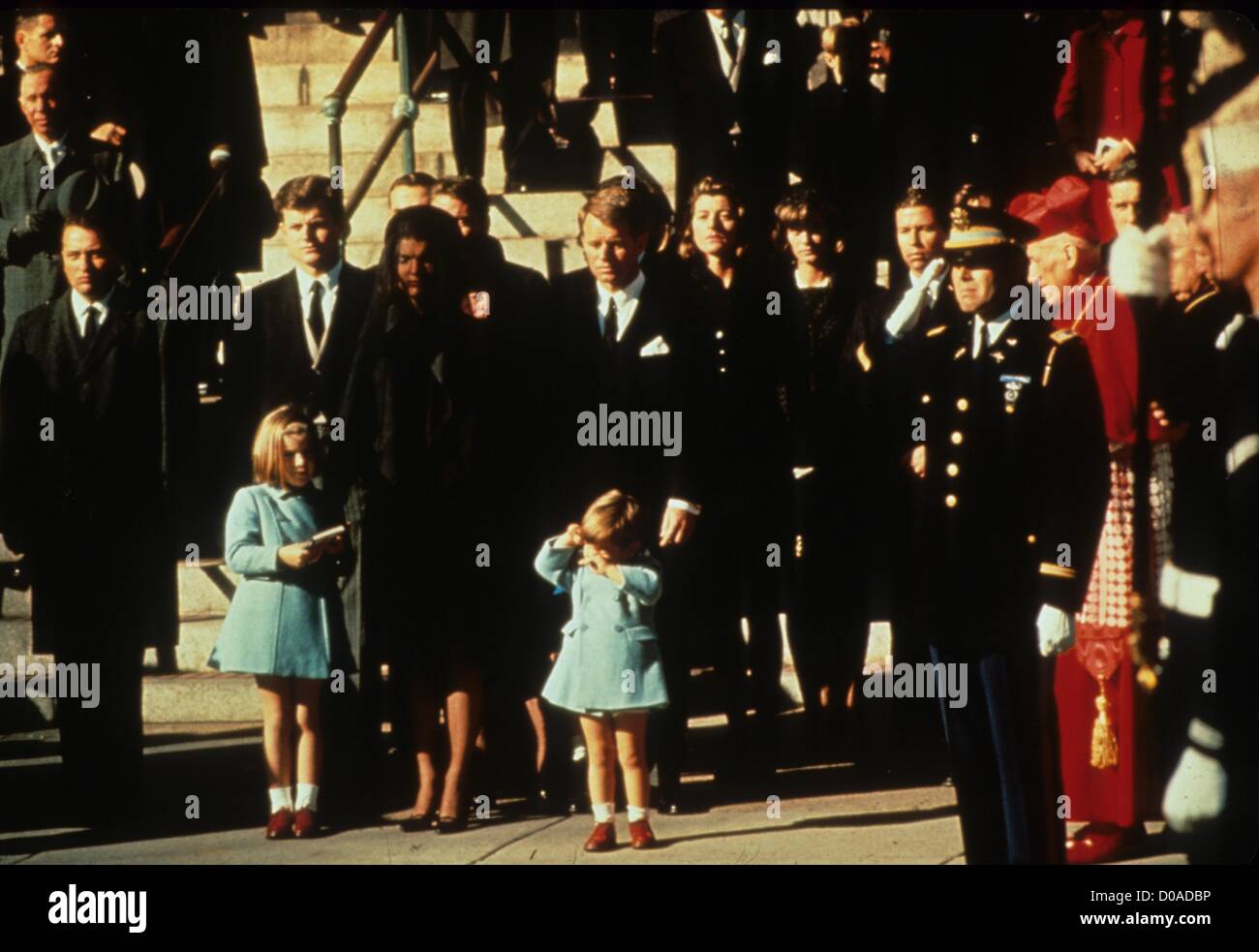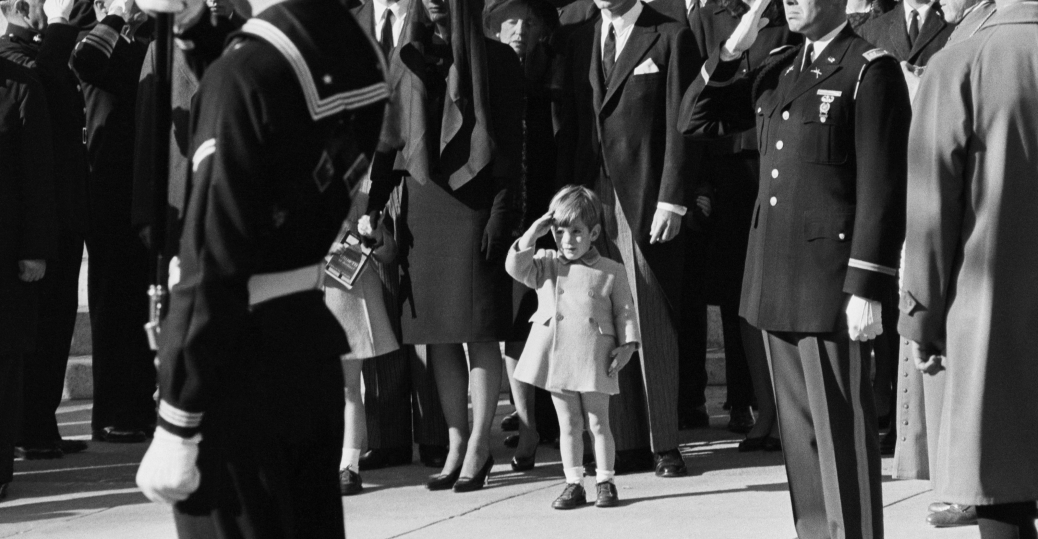John F. Kennedy Jr.'s funeral was a poignant moment in American history, marking the end of an era for the Kennedy family and the nation. The event brought together dignitaries, friends, and millions of mourners who paid tribute to a man whose life was filled with promise and charisma. As we delve deeper into this topic, we will explore the funeral's details, its significance, and how it symbolized the enduring legacy of the Kennedy family.
John F. Kennedy Jr., often referred to as JFK Jr., was not only the son of the 35th President of the United States but also a symbol of hope and inspiration for many. His untimely death in 1999 shocked the nation, and the funeral that followed was a reflection of the profound impact he had on American society. Through this article, we aim to provide a detailed account of the funeral and the life of JFK Jr., highlighting his achievements and contributions.
As we explore the life and funeral of John F. Kennedy Jr., we will examine the ceremony's significance, the attendees, and the tributes paid in his honor. This article will also delve into the cultural and historical context surrounding the event, offering readers a comprehensive understanding of its importance in American history.
Read also:The Problematic Prince A Deep Dive Into The Controversial Life Of Prince Harry
Biography of John F. Kennedy Jr.
Early Life and Family Background
John Fitzgerald Kennedy Jr. was born on November 25, 1960, in Washington, D.C., to President John F. Kennedy and First Lady Jacqueline Kennedy. From a young age, JFK Jr. was thrust into the public eye, becoming a symbol of the Kennedy legacy. Growing up in the White House, he was affectionately called "John-John" by the media, capturing the hearts of many Americans.
Below is a summary of his personal details:
| Full Name | John Fitzgerald Kennedy Jr. |
|---|---|
| Date of Birth | November 25, 1960 |
| Place of Birth | Washington, D.C. |
| Parents | John F. Kennedy and Jacqueline Kennedy |
| Spouse | Carolyn Bessette-Kennedy |
Education and Career
John F. Kennedy Jr. attended prestigious institutions, including Phillips Academy and Brown University, where he graduated with a degree in American Studies. He later pursued a career in law, passing the New York State Bar Exam in 1990. JFK Jr. also ventured into journalism, co-founding the magazine "George," which focused on political and social issues.
John F. Kennedy Jr. Funeral Details
Date and Location
The funeral of John F. Kennedy Jr. took place on July 23, 1999, in the Cathedral of St. John the Divine in New York City. This location was chosen to accommodate the large number of mourners and dignitaries who attended the service. The cathedral's grandeur and historical significance made it an appropriate venue for such a solemn occasion.
Attendees and Dignitaries
The funeral was attended by numerous high-profile figures, including members of the Kennedy family, political leaders, and celebrities. Notable attendees included President Bill Clinton, former President Jimmy Carter, and various members of Congress. The presence of these dignitaries underscored the importance of JFK Jr.'s legacy and the respect he commanded in both political and social circles.
The Significance of the Funeral
A Reflection of a National Loss
John F. Kennedy Jr.'s funeral was more than just a ceremony; it was a reflection of a national loss. The outpouring of grief from the American public demonstrated the deep connection many felt with the Kennedy family. JFK Jr. was seen as a beacon of hope and a continuation of his father's legacy, and his untimely death was a blow to the nation's collective consciousness.
Read also:Erik Menendez The Controversial Calvin Klein Ad And Its Impact
Tributes and Speeches
During the service, several tributes and speeches were delivered by close friends and family members. These heartfelt words highlighted JFK Jr.'s charisma, kindness, and commitment to public service. The eulogies served as a reminder of the positive impact he had on those around him and the potential he held for the future.
John F. Kennedy Jr.'s Legacy
Continuing the Kennedy Tradition
John F. Kennedy Jr. carried on the Kennedy family tradition of public service and advocacy. Through his work in journalism and law, he addressed important social issues and inspired others to make a difference. His legacy continues to influence generations, encouraging them to engage in civic activities and strive for a better world.
Key Moments in the Funeral Ceremony
The Procession
The funeral procession was a solemn yet dignified affair, with mourners lining the streets to pay their respects. The procession route was carefully chosen to pass through significant landmarks in New York City, symbolizing JFK Jr.'s deep ties to the city and its people.
Religious Observances
The service included various religious observances, reflecting JFK Jr.'s Catholic faith. These rituals provided comfort to the grieving family and offered a sense of closure to the mourners. The inclusion of religious elements emphasized the spiritual aspect of the ceremony and the importance of faith in the Kennedy family's lives.
Public Reaction and Media Coverage
Mourning Across the Nation
The public reaction to John F. Kennedy Jr.'s death was overwhelming, with millions of Americans tuning in to watch the funeral on television. The media coverage was extensive, capturing every detail of the ceremony and providing insights into the life and legacy of JFK Jr. This widespread attention highlighted the profound impact he had on the nation.
Analysis of Media Reports
Media outlets analyzed the funeral from various angles, discussing its significance, the attendees, and the tributes paid. These reports helped to contextualize the event within the broader framework of American history and culture, offering a deeper understanding of its implications for the future.
Historical Context and Impact
Comparing JFK Jr.'s Funeral to Other Historical Events
John F. Kennedy Jr.'s funeral can be compared to other significant historical events, such as the funerals of his father and uncle, Robert F. Kennedy. These ceremonies shared common themes of loss, remembrance, and the enduring legacy of the Kennedy family. By examining these parallels, we gain a better appreciation of the cultural and historical significance of JFK Jr.'s funeral.
Long-Term Effects on American Society
The funeral of John F. Kennedy Jr. had long-term effects on American society, reinforcing the Kennedy family's role as symbols of hope and resilience. It inspired many to reflect on the values and ideals that JFK Jr. represented, encouraging them to contribute positively to their communities.
Conclusion and Call to Action
In conclusion, John F. Kennedy Jr.'s funeral was a poignant and significant event in American history. It marked the end of a promising life but also celebrated the enduring legacy of the Kennedy family. Through this article, we have explored the details of the funeral, its significance, and the impact it had on the nation.
We invite readers to share their thoughts and reflections in the comments section below. Additionally, we encourage you to explore other articles on our website that delve into the lives and legacies of influential figures in history. Together, let us honor the memory of John F. Kennedy Jr. by continuing to strive for a better world.
Table of Contents


